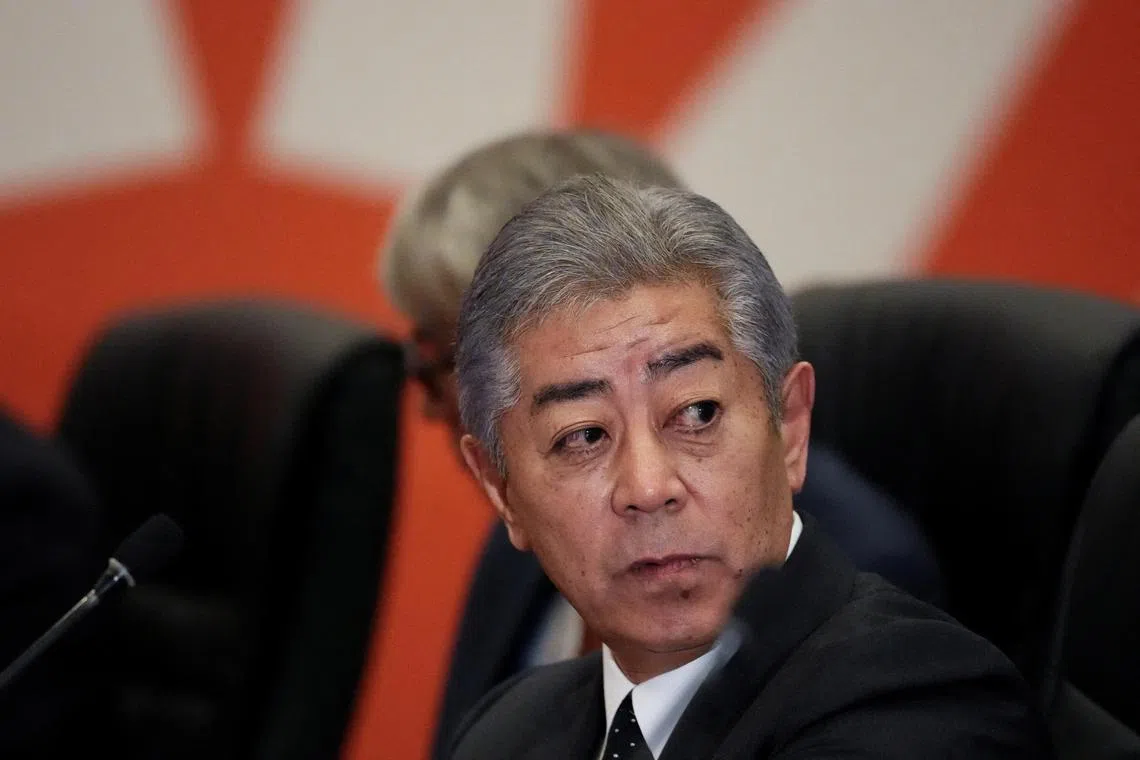Japan’s Foreign Minister raises ‘serious concerns’ over China’s military build-up
Sign up now: Get ST's newsletters delivered to your inbox

Japanese Foreign Minister Takeshi Iwaya met his Chinese counterpart Wang Yi and Premier Li Qiang during his visit to China.
PHOTO: REUTERS
Follow topic:
BEIJING - Japanese Foreign Minister Takeshi Iwaya on Dec 25 raised “serious concerns” over China’s military build-up as he met counterpart Wang Yi in Beijing, Tokyo said.
On his first visit to China since becoming Japan’s top diplomat earlier in 2024, Mr Iwaya told Mr Wang that Tokyo was “closely monitoring the Taiwan situation and recent military developments”, according to Japan’s Foreign Ministry.
Meeting Mr Wang at Beijing’s opulent Diaoyutai State Guesthouse, he also “expressed serious concerns over the East China Sea situation, including around the Senkaku Islands (and) China’s increasing military activity”, Tokyo said. In addition, Mr Iwaya called for the “swift release” of Japanese nationals detained
“Opaqueness surrounding the anti-espionage law is causing Japanese people to think twice about visiting China,” he warned.
But the two ministers also agreed to work towards a visit to Japan by Mr Wang “at the earliest possible timing next year”.
China’s Foreign Ministry said in a statement that the meeting would take place “at an appropriate time”, without mentioning discussions of Beijing’s military manoeuvring or detained Japanese nationals.
Earlier, Mr Iwaya met Chinese Premier Li Qiang and agreed to work for a “constructive and stable” relationship, Japanese news agency Kyodo said.
China and Japan are key trading partners, but increased friction over disputed territories and military spending has frayed ties in recent years.
Beijing’s more assertive presence around disputed territories in the region, meanwhile, has sparked Tokyo’s ire, leading it to boost security ties with the US, its key ally, and other countries.
In August, a Chinese military aircraft staged the first confirmed incursion by China into Japanese airspace for the first time
Beijing’s rare test launch of an intercontinental ballistic missile into the Pacific Ocean
Tensions between the two sides also flared in 2023 over Japan’s decision
China branded the move “selfish” and banned all Japanese seafood imports, but in September, said it would “gradually resume” the trade.
On Dec 25, the two ministers affirmed their support for that plan.
China imported more than US$500 million (S$680 million) worth of seafood from Japan in 2022, according to Customs data.
Japan’s brutal occupation of parts of China before and during World War II remains another sore point, with Beijing accusing Tokyo of failing to atone for its past.
Visits by Japanese officials to the Yasukuni shrine

